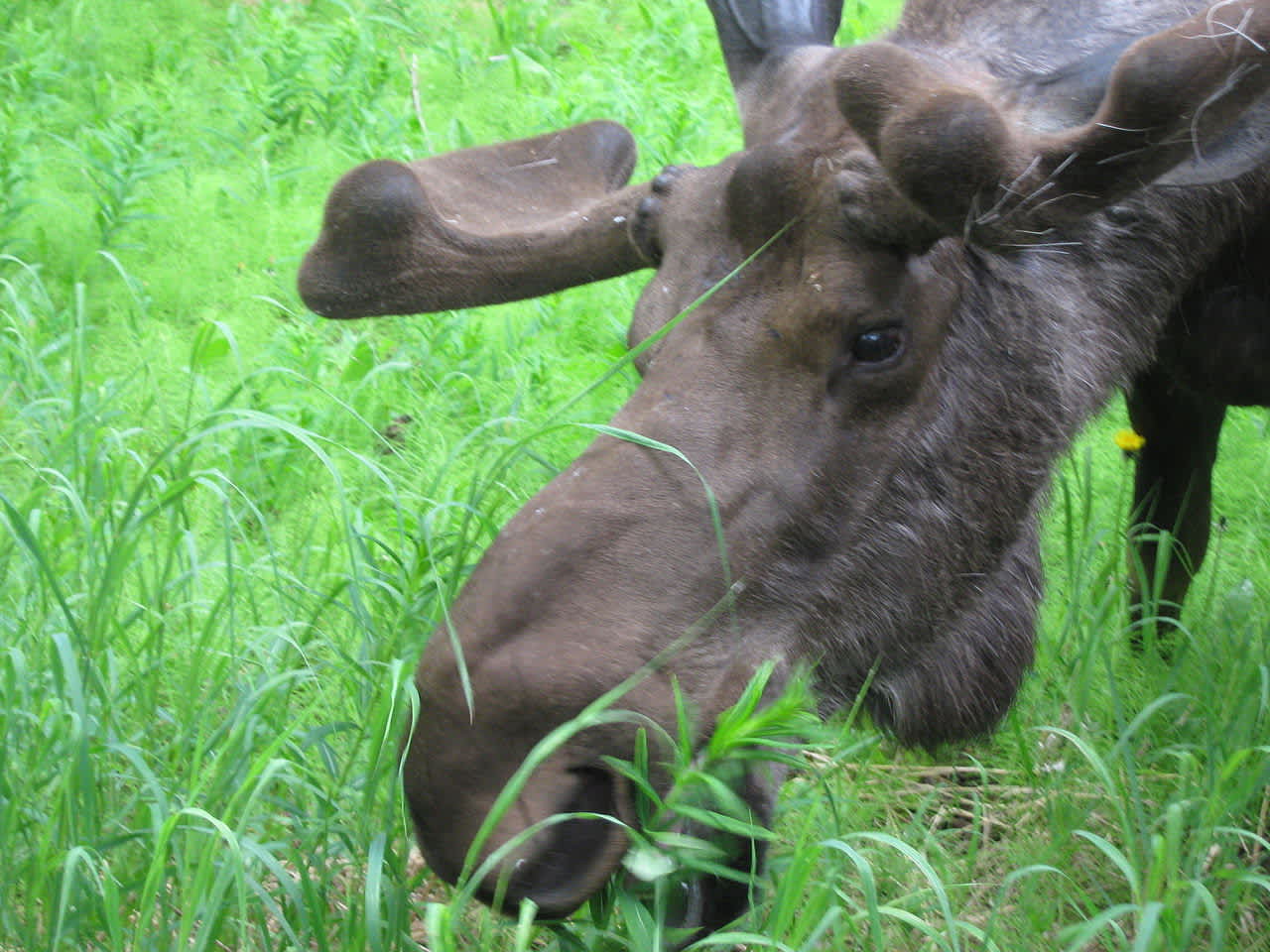Study: Moose Spit Counteracts Toxic Fungi
OutdoorHub Reporters 07.27.14

A team of researchers at Canada’s York University recently discovered that moose spit can make some types of fungi less toxic and grow slower. The report was recently published in Biology Letters after researchers applied moose and European reindeer saliva to colonies of E. festucae fungus and found that in 12 hours, fungal growth slowed significantly.
How much fungi do moose actively eat? Well, the fungus used in the study was actually on a species of grass called red fescue. Many plants, especially grasses, harbor fungi as part of a symbiotic relationship. As with most living organisms, fungi do not appreciate being eaten. When a fungus senses that its host plant is wounded as a result of grazing, it will produce a toxic chemical to deter herbivores from returning to the plant a second time. It now seems that moose have evolved to counteract the toxins, called alkaloids, and revisit the plant later on for another meal.
“Our results now present the first evidence, to our knowledge, that ungulate saliva can combat plant defences produced by a grass-endophyte mutualism,” stated the researchers in the study.
Dawn Bazely, one of the researchers on the study, told the CBC that the saliva will begin to work on the fungal growth as quickly as 12 to 36 hours. The result is that the next time a moose visits that specific blade of grass, the herbivore will not get a mouthful of toxic alkaloids.
“If you think about moose they have home ranges. So they may actually be re-encountering the same plants [and] they may get a benefit,” Bazely said.
That does not mean the fungi are not without tricks of their own. The evolutionary arms race between the consumer and the consumed never really stops, and scientists have discovered that red fescue in Southern Ontario may have developed a defense against moose saliva. According to the Royal Society, the fungi in these plants produce toxins at consistently high levels, which may have been caused by a combination of water scarcity and moose saliva. Scientists are currently investigating exactly how moose spit affects fungi growth.
Toxins are not the only weapons a plant has against those pesky herbivores. Thorns, barbs, sticky resins, and foul tastes were all developed as defenses against herbivory.

